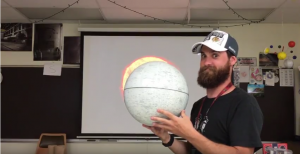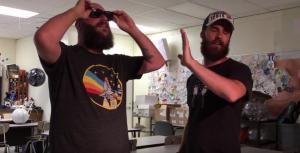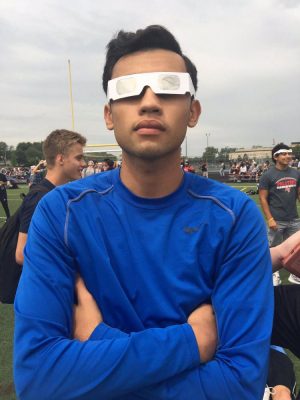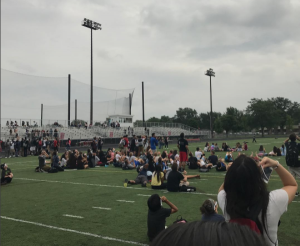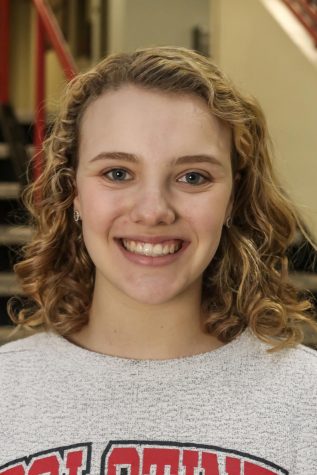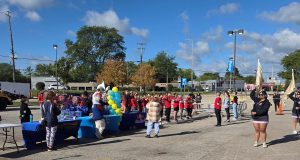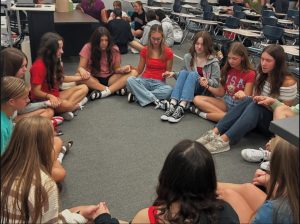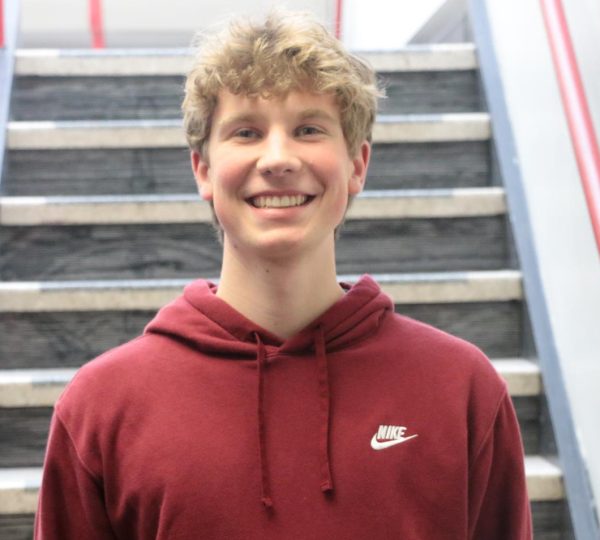Eclipse a shining moment for Fisher-Rohde
August 25, 2017
Monday afternoon North America witnessed one of the largest events in astronomical history.
For some, this meant making a pinhole in a foil covered cereal box and watching tiny shadows of the sun in your driveway. For others, it meant traversing across the country to find the optimal viewing location for the brief moment of totality, when the sun was entirely concealed by the moon.
For PHS science teacher, Sean Fisher-Rohde, it meant supplying nearly 4,000 high school students and staff with glasses so that they may safely witness the eclipse first hand. It meant traversing around the Midwest to find the best place to see this event, and still making it back to work the next day. It meant convincing your students to convince their parents to take them somewhere to see the totality firsthand.
And perhaps most importantly, it meant being in awe. Not just of the eclipse itself, but of the effect it had on the inhabitants of the world.
“For a moment, I like to think that humanity joined together, and I think that’s my moment,” the star-stricken astronomy teacher said. “It’s kind of ironic, actually. The most fascinating thing about the eclipse had absolutely nothing to do with the science behind it. What mattered most was people’s response.”
“For a few hours, tens of millions of people from around this country got together to witness this event.” Fisher-Rohde said. “For a few hours this became the most important event in world… We were all watching it together.”
Of course, this isn’t to say he wasn’t fascinated by the astronomical aspect as well. When Fisher-Rohde described this event to his sixth period astronomy class, there were several occasions where he found himself speechless.
He did; however, mention a couple things that truly emphasized his perspective, aside from the part about humanity uniting. When viewing totality, he explained the sensation that one experiences like this:
“You know it. You intuitively, instinctively know that you should be seeing it.” And finally, after all was said and done, he remarked that the event was, “Glorious. Just simply, glorious.”
In addition to Monday’s solar eclipse, which he witnessed from both Carbondale, Illinois as well as Eddyville, Kentucky, Fisher-Rohde has had plenty of other “out-of-this-world” experiences in his field.
His two claims to fame include meeting Bill Nye (yes, the science guy) and having a personalized weather report from Tom Skilling, meteorologist from the WGN News. He’s actually met Nye on two separate occasions, once at an observation of a spacecraft flying by Pluto, and another at his favorite pizza joint in Cape Canaveral. More recently, if you tuned in this Monday, you even would have seen Fisher-Rohde on the 7am news with Skilling. Also, in case you were wondering why he went to Kentucky and Carbondale to see the total eclipse, it’s because Tom Skilling told him to.
Impressed yet?
“Before totality— I’ve been searching for the words to describe this but I’m not a poet, and I’m not an artist, and I can’t describe it, but something happens to your world and the color changes,” Fisher-Rhode said.
In case you’re feeling inspired, Fisher-Rohde highly suggests that you see the next total eclipse over North America.
“2024, Monday April 8th, you can put it in your calendars now.”
After all, the next one after that isn’t until 2099, which will make the freshman now almost 97 years old. Unless you have infallible plans to live that long, it’s time to start making arrangements.
“The next time you’re about to spend something frivolous,” Fisher-Rhode recommended. “I need this frappucino so bad, you take that money and you shove it into an envelope. You write on that envelope, April 28, 2024. You give that envelope a name and a goal.”
The point is that being able to see the eclipse isn’t about money. It’s about a once in a lifetime experience that people should be able to see. When I spoke to Fisher-Rohde about how he managed to get all of the students at Palatine High School eclipse glasses, it was quite the story.
He purchased 300 out of pocket, got the Adler Planetarium to donate 1,500 (which were split with Conant High School, another long story), and convinced Principal Gary Steiger to find school funds to supply the rest. He also said that he’s working on getting enough for the entire Palatine community for 2024.
“Yesterday, this one. It’s been in my calendar since I had a calendar to put it on.”
So the next time you’re walking through the science department, keep an eye out for Fisher-Rohde, and thank him for enabling you to witness the eclipse firsthand. But at the very least, mark your calendars for April 8, 2024.




